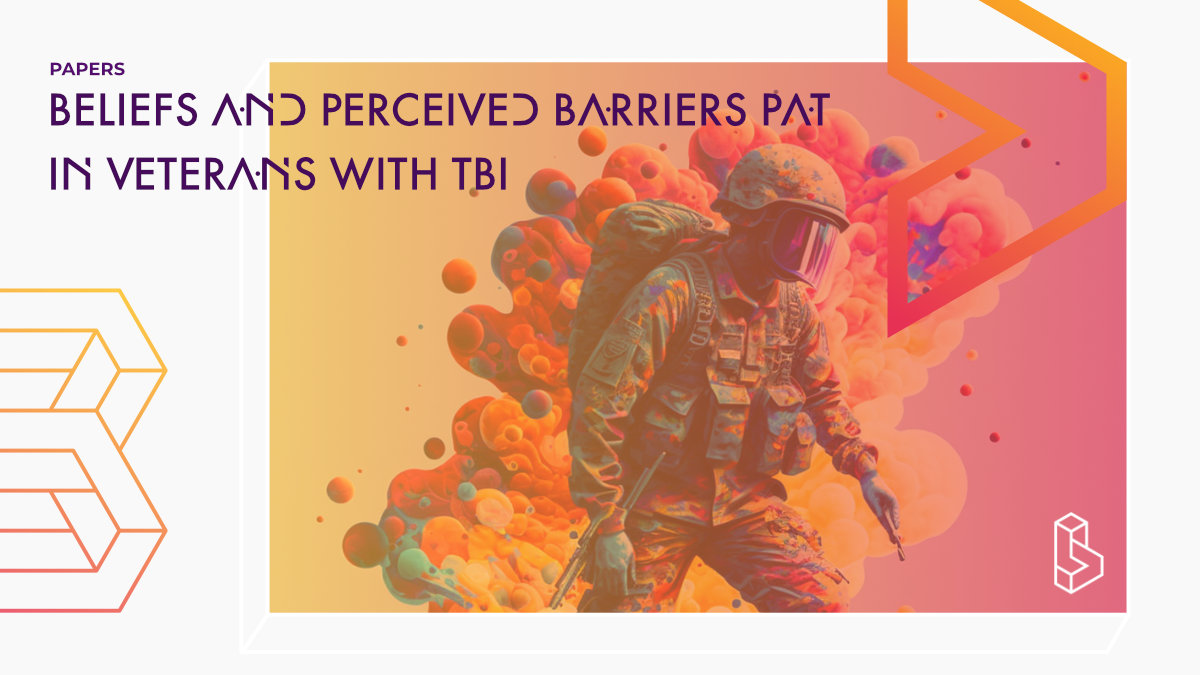This interview study (n=21) presented service members and veterans, who had a history of traumatic brain injury (TBI) with information on psychedelic-assisted therapy (PAT). Before presenting info, they were neutral, after they had significantly more positive views on psychedelic drugs (3.2 out of 5), interest in PAT (3.7), and would support medical PAT (4.3).
Abstract
“Introduction Posttraumatic stress disorder (PTSD) and depression are common in service members and veterans, and the response to currently available treatments is often modest at best. Recent studies suggest potential benefit with psychedelic-assisted therapies (PATs), particularly 3,4-methylenedioxymethamphetamine-assisted therapy for PTSD and psilocybin-assisted therapy for depression. This study examined beliefs and perceived barriers regarding PAT among service members and veterans to inform the delivery of these treatments if they are approved by the FDA.
Materials and Methods Twenty-one service members and veterans (67% male, 81% White, and 43% active duty) with a history of traumatic brain injury and co-occurring cognitive and psychological symptoms completed a measure assessing baseline knowledge and views of PAT, read a brief psychoeducation regarding PAT, and then responded to questions related to their beliefs and perceived barriers to PAT.
Results Before psychoeducation, participants reported a neutral view of psychedelic drugs (M = 2.76; range: 1-5), PAT (M = 3.33), and interest in PAT (M = 3.10). After psychoeducation, participants reported a significantly more positive view of psychedelic drugs (M = 3.24, P = .014) and interest in PAT (M = 3.67, P = .016). Overall, participants indicated that they would support PAT availability in medical settings if proven beneficial (M = 4.52; 5 = “agree strongly”) and they would support a loved one engaging in PAT (M = 4.29). The most frequently reported health concerns were concern of long-term effects (43%), fear of losing their mind (33%), fear of personality changes (33%), and fear of traumatic brain injury complications (24%). The most frequently endorsed barriers were time commitment, transportation, financial concerns, work, and childcare (33%-19%), with 48% reporting no barriers.
Conclusions This is the first study to explore beliefs and perceived barriers regarding PAT among service members and veterans. These results indicate that military populations may be interested in PAT, particularly if psychoeducation and outreach regarding these treatments occurred. If FDA approved, it will be important to facilitate command support and address logistical barriers to ensure appropriate access within military contexts.“
Authors: Joshua C Gray, Mikela Murphy, Sierra E. Carter, Matthew W. Johnson, Aaron S. Wolfgang, Michael J. Roy & Jessica L. Maples-Keller
Summary of Beliefs and Perceived Barriers PAT in Veterans with TBI
Randomized controlled trials support the promise of psychedelic-assisted therapy for depression and PTSD. A Phase III study for psilocybin for major depressive disorder is planned to begin this year.
Many military patients with PTSD and depression do not respond to or drop out from treatment, and prolonged exposure and cognitive processing therapy may be promising options for these populations.
Study details
Topics studied
Traumatic Brain Injury
Study characteristics
Interviews
Participants
21
Humans

